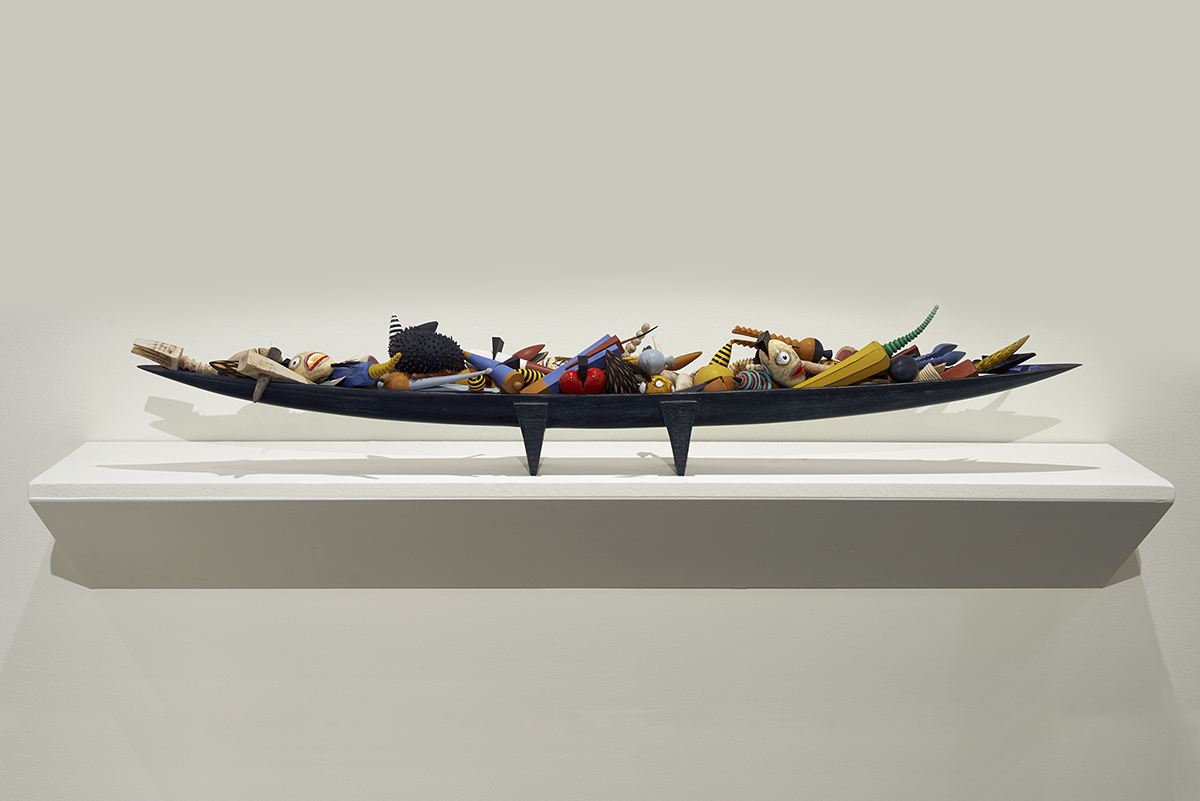CRAFT IS A SEXY WORD

This article was originally shared on NSCAD’s website on February 10, 2016.
Imagine the audience in their underwear: it’s a cliché that every public speaker has heard once in their life; a visual switch in the power dynamic whereby the speaker’s confidence is boosted by imagining the audience in a vulnerable state, shorn of their protective layers. But for the curators of Naked Craft, naked does not always mean vulnerable.
Showcasing the talents of 22 makers from Canada and Scotland, the works in Naked Craft offer a wide-range of perspectives on the face of contemporary craft. To unite these diverse works the curators have symbolically stripped craft back to reveal four unifying subthemes amongst the pieces: Do-it-yourself (DIY), Down and Dirty (exploring politics through making), New Positions (new ideas explored through historic craft practices), and Tooling up (the introduction of new technologies in craft).
In conversation with Dr. Sandra Alfoldy, craft historian and one of four curators of Naked Craft, she argues that—as northern countries with superpowers to the south—both Canada and Scotland tend to identify themselves by what they are not: not the United States and not England. Rather than reinforcing problematic nationalisms, the work in Naked Craft demonstrates shared ways of making that exist past boundaries of state and land. From Jennifer Cantwell’s salmon skin belt and copper sporran; to Teresa Burrows’ beaded beaver fur robes in She’s Come Undone: Our Lady of the Trapline; from Caroline Dear’s shawl woven from plants native to the Isle of Skye; to Amélie Proulx’s (MFA 2010) kinetic sculpture that shifts and rattles the ceramic flower-like forms on their base; Naked Craft demonstrates the diverse contemporary craft practices coming out of Old and New Scotland.

Amélie Proulx’s kinetic sculpture Paysage sismographique fits with the “Tooling Up” theme.
“I love that Naked Craft was set up with The Last Art College,” says Prof. Alfoldy, speaking to the two shows who shared an opening night at the Art Gallery of Nova Scotia in January. “I think that that juxtaposition worked out really wonderfully… [In a way] I really feel like The Last Art College is about the way things were, and Naked Craft is the way things are going to be: boundaries breaking down, people borrowing back and forth…”
Prof. Alfoldy goes on to draw a visual connection to Sarah Alford’s (BA 2003, BFA 2004) tapestries woven from layered lines of hot glue in Naked Craft and the repeated lines of Sol Lewitt’s conceptual wall drawings in The Last Art College. Conceptualism (the movement that influenced the work in The Last Art College) in its ideal strove for the complete dematerialization of the art object—the idea itself laid bare—while craft by definition refers to the making of objects, the idea expressed through materials.

Sarah Alford, From Lectures on Art Botany No. 4 (detail), 2014-2015
While it’s an easy task to juxtapose these works and shows, Prof. Alfoldy says it’s almost impossible for her to engage her students in the historic art vs. craft debate concerning hierarchy, “and I love that,” she says, “It means that [for this younger generation] the debates are going to come up about different things and in different areas … It’s so exciting.”

Scottish artist Caroline Dear created this shawl using materials native to the Isle of Skye, fitting in the theme ‘New Positions.’
Naked Craft is on view at the Art Gallery of Nova Scotia’s Halifax location until April 12, 2016.
Mollie Cronin is a freelance writer, curator, podcaster, and cartoonist living in Halifax, Nova Scotia. Born in Windsor, Ontario, she grew up in Fredericton, New Brunswick, before moving to Halifax in 2001. In 2012 she completed the Foundation Year Programme at the University of King’s College before earning a Bachelor of Arts in Art History from NSCAD University in 2015. Cronin currently works as a collections supervisor for a major Nova Scotia collector.
NSCAD STUDENTS GET FREE MEMBERSHIPS!
The Art Gallery of Nova Scotia offers free memberships for all NSCAD students, giving students free admission, plus invitations to exhibition openings, discounts at the gallery shop, and a regular e-newsletter. Contact us today: 902 424 5280, info.desk@novascotia.ca

